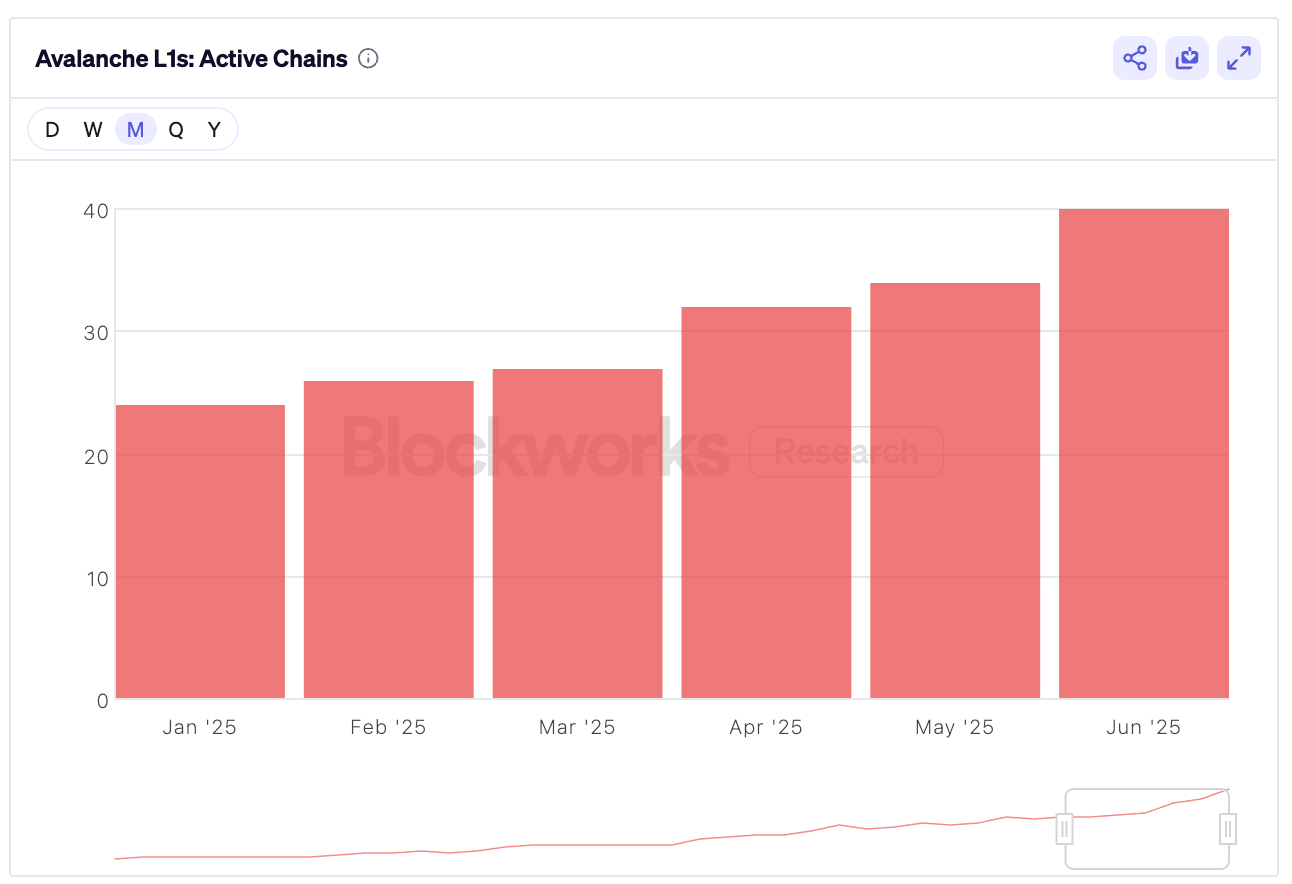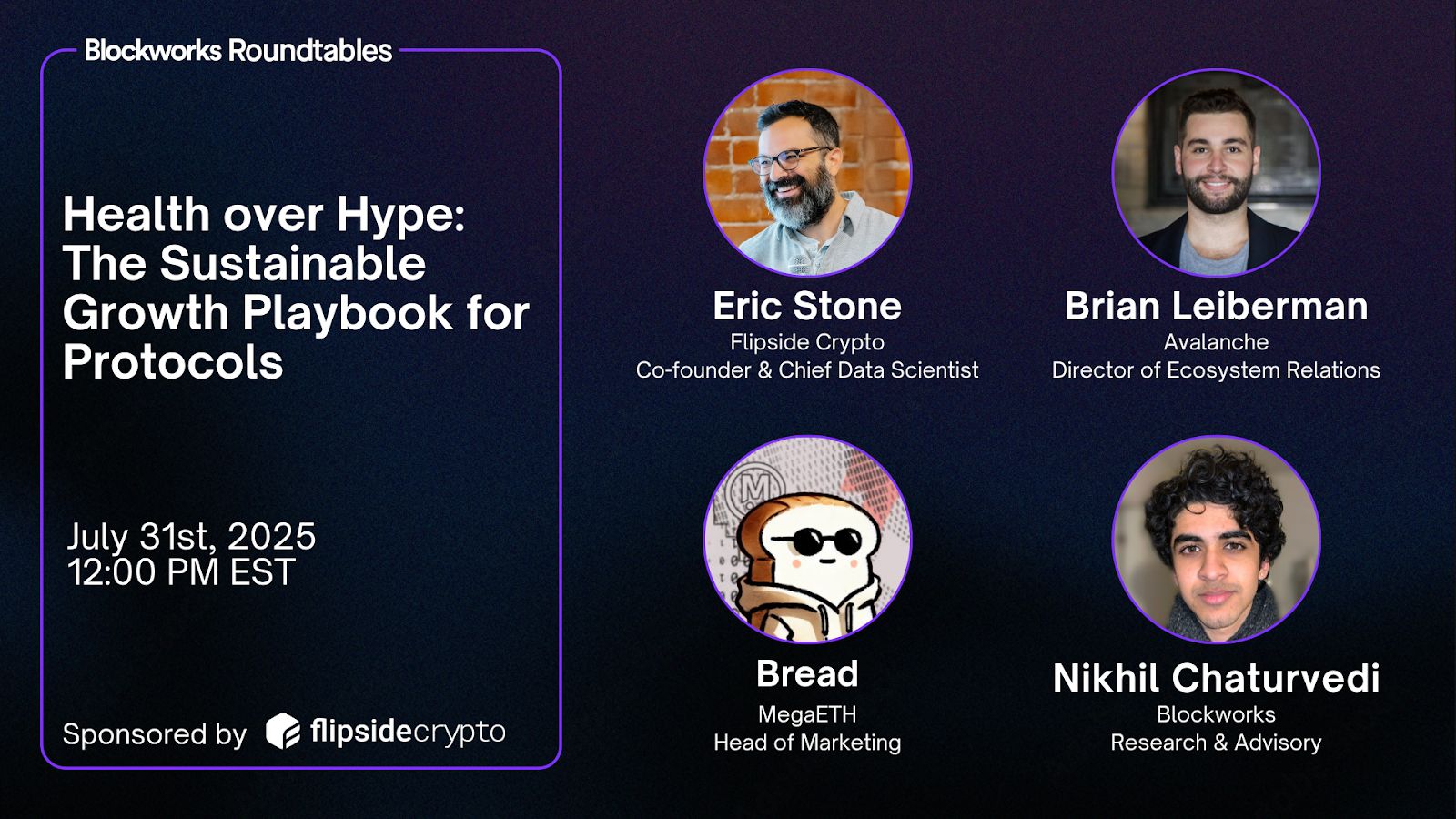- 0xResearch
- Posts
- 🦾 The real AI moat
🦾 The real AI moat
Poseidon IP-safe data

As AI pushes into the physical world, from robotics to wearables, a new bottleneck has emerged: data. Poseidon, incubated by Story Protocol, has raised $15m from a16z crypto in a bid to solve it.
— Macauley

Avalanche subnets surge:

Source: Blockworks Research
The chart above tracks the number of active Avalanche layer-1 subnets (those that produced at least one block in a given month). In January, the network supported just 24 live chains. Just six months later, in June, that figure jumped 66% to 40.
Activity has accelerated faster: Aggregate throughput across the subnet set has quadrupled from ~50 to more than 200 transactions per second, according to Blockworks Research, which opened up a new set of dashboards on Monday.
Much of the incremental load comes from new purpose-built chains, such as Coqnet in social, Dexalot and DeFi Kingdoms for DeFi and gaming.
Importantly, the growth has not congested Avalanche’s shared infrastructure. Average and median fees on the C-Chain remain flat, while pay-as-you-go validation costs for subnet operators have risen only modestly, keeping the model economically viable.
In crypto, hype fades but sustainable ecosystems win. Learn how top protocols are building for the long haul.
Join Blockworks Research, MegaETH, Flipside Crypto and Avalanche for this upcoming Roundtable.
📅 July 31 | 12 PM EST
Data unlock for AI
Poseidon has raised a $15 million seed round led by a16z crypto to solve one of AI’s bottlenecks: access to high-quality, IP-cleared training data. Incubated by Story Protocol, Poseidon offers a full-stack decentralized data layer tailored for AI systems that operate in the real world.
Meta’s recent acquisition of Scale AI for $14 billion has left a competitive opening in this arena, according to Sandeep Chinchali, Poseidon co-founder and chief AI officer at Story.
“Major AI labs and enterprises have pulled their contracts,” Chinchali told Blockworks. “But the need for high-quality, rights-cleared data hasn’t gone away. It’s only intensified.”
Chinchali, a Stanford-trained AI researcher, brings over a decade of experience in edge intelligence and robotics. His team’s approach combines auto-labeling with human-in-the-loop refinement to scale data acquisition without sacrificing quality.
“We prioritize targeted data collection based on real-world failure modes,” he explained, “and validate every dataset using metadata checks and Story’s programmable IP licensing.”
Applications include robotics, autonomous vehicles, wearables and embodied agents, for which synthetic training data or sources scraped from the internet are insufficient.
Poseidon addresses this gap by coordinating a global network of data contributors through onchain incentives, real-time USDC payments and Story’s licensing infrastructure. The protocol treats data as composable intellectual property, allowing contributors to receive attribution and royalties — not just for raw data, but for derivative works like annotations or synthetic augmentations.
“Poseidon ensures that all contributors in this chain, from original collectors to labelers, receive onchain attribution and participation in downstream value when the data is used to train AI models,” said Chinchali.
Early customers include a top robotics firm and an audio foundation model team sourcing dialect-rich speech data, although Chinchali declined to name them specifically. Poseidon is also partnering with universities and Fortune 500 companies building AI capabilities, he said.
With the seed funding, Poseidon will roll out contributor modules, SDKs and integrated licensing tools. “We’re validating the thesis that Web3 can unlock large-scale, equitable data collection for the long-tail datasets physical AI depends on,” Chinchali said.
Early access is expected before the end of summer. As Poseidon builds out its infrastructure, the bet is clear: In the race to real-world AI, data — not models — will be the moat.
— Macauley Peterson

|
|
